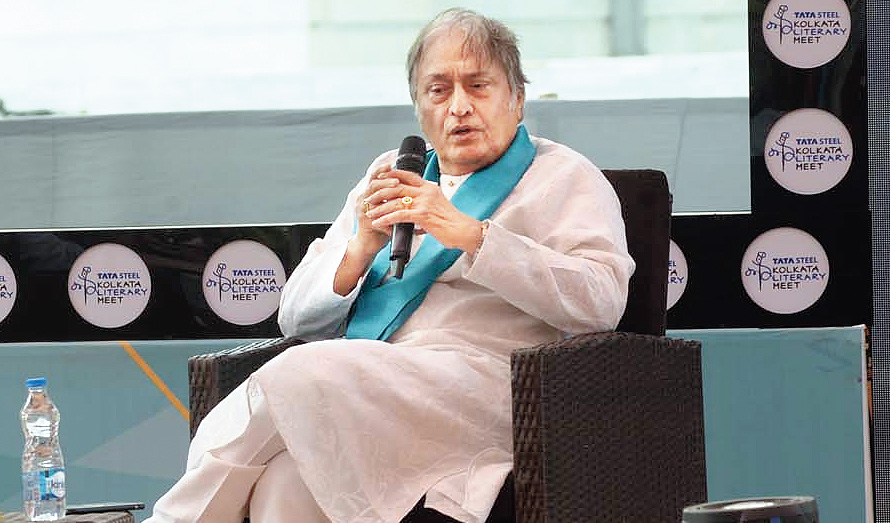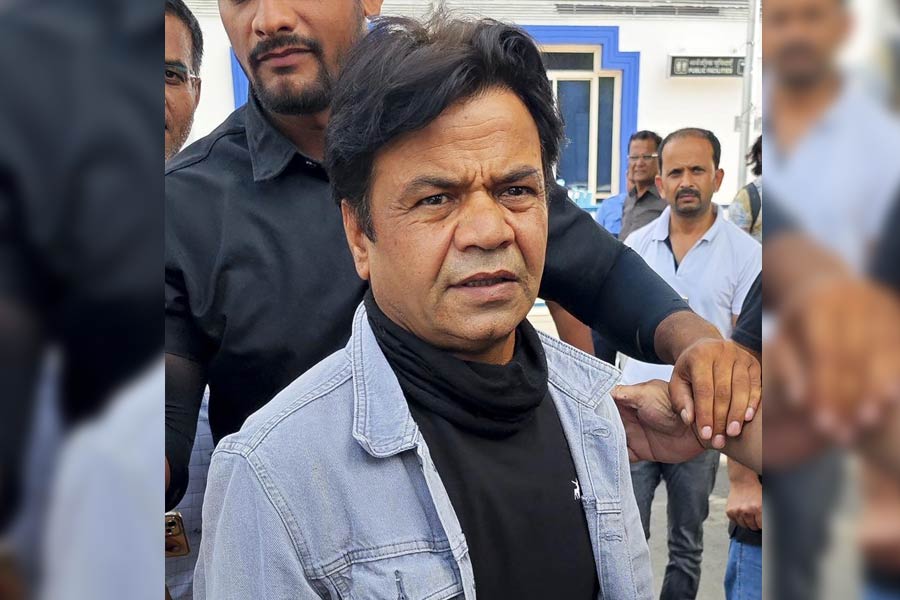Amjad Ali Khan connected with his listeners, not through the strains of sarod strings, but with words that resonated his passion for music on Sunday morning.
The maestro was in conversation with Arunabha Deb, a lawyer by profession and a musician by choice, on his latest book — Master on Masters — at the Tata Steel Kolkata Literary Meet in association with the Victoria Memorial Hall and The Telegraph.
The discussion provided a glimpse into the book which reflects Khan’s love and respect for the stalwarts such as Bhimsen Joshi, Ravi Shankar, Kishan Maharaj, Vilayat Khan and Bismillah Khan, who ruled the world of Indian classical music and the deep bond he shared with them.
“I believe in being traditional, not conventional,” Khan said, before going on to draw a sharp distinction between tradition and convention. “In India we blindly worship and follow conventions, whether it is in religion or classical music. There is nothing wrong in that, but tradition allows innovation. If you want to think, you might come up with something within the tradition. My father, who was my teacher too, gave me the permission to take the liberty of innovation and go ahead with my thoughts. It is all about the beauty of a composition which makes a raga enchanting while retaining all its core attributes. Following the conventional way of a structured presentation may at times destroy the mood and charm of a raga,’’ the sarod maestro said.
Khan spoke about Tagore who innovated successfully to enhance the aesthetic value of his compositions. He shared how Tagore sometimes broke the structure of a raga, and yet the so-called grammatically incorrect use could add to the beauty of the composition.
He hummed a few tunes to demonstrate various aspects and nuances of Indian music and how there can be no distinctive lines between genres of music.
The conversation was peppered with anecdotes and memories that struck a chord with the audience.
Deb, as moderator of the session, wove in interesting references and invited Khan to speak his heart on everything from the multi-coloured canvas of friendship, mutual respect and emotional attachment.
Khan spoke about Kishan Maharaj’s ability to maintain a fine balance between beauty and boldness. He said the tabla maestro was a brilliant mathematician and could create impromptu bols but that never came in the way of the beauty of the rhythm.
The audience got a peek into the conflict between personal and professional relationship when the sarod maestro spoke about Vilayat Khan.










